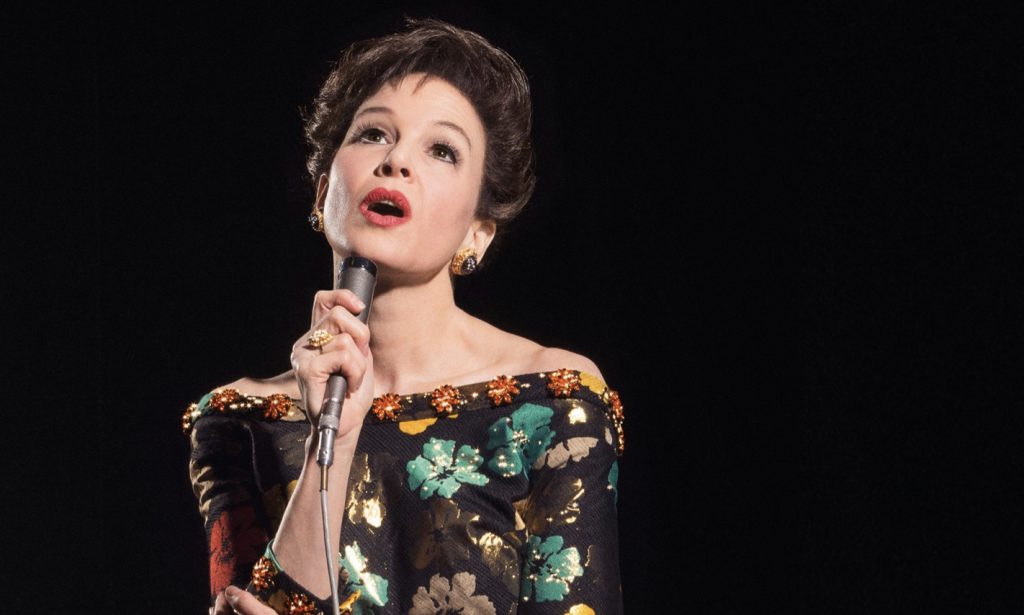Judy relays the final year of the late, exceedingly great Judy Garland and her reluctant relocation from LA to London. It’s a touching homage to the bittersweet life of performance and stardom, founded ultimately on the cliched but relevant rhetoric that kindness and understanding of each other’s plights and individual struggles can’t be understated. Stripped down even further, it’s the story of Judy as a human. A single mother struggling financially to maintain custody of her children, taking any work she can get in spite of the physical and emotional toll it will claim on her.
The plot oscillates back and forth between her early years as a performer and the year 1969. Juxtaposing the naivety of her career as a young performer with her twilight years, showing us what changed, what didn’t and what kind of person she became. It works on the assumption that the audience is fully aware of Garland’s talent and significance in Hollywood. This effective use of a non-linear narrative keeps uninformed viewers entertained and offers a new perspective on her story to existing fans.
A truth viewers will take from this film was Judy’s desire to be a mother, which is relentless in its portrayal of her dedication in this respect. We also learn that her career aspirations were never really her own, never asked to be a star but rather left with little to no choice given the enormity of her talent. Judy’s drug and alcohol dependence is also heavily featured. A sombre but important part of her narrative that is attributed almost entirely to her mother’s desire to make her the perfect Hollywood ‘girl next door’.
Judy’s unreliability as a performer left her with difficulties getting work and maintaining marriages, the latter being an aspect of her life she would jump into quickly and somewhat naively – a bid on her part to have a stable family of her own. The men in her life are all presented as having some sort of agenda in their relationships with her, whether they are aware of it initially or not.
The film also touches on her stature as a gay icon, characterised through the medium of a very touching scene with a pair of dedicated fans. A tender reminder of the impact and relationship she had with so many of the people that adored her, despite the loneliness she suffered. A seemingly vicious circle stemming from a career that chose her more than she chose it.
It’s a lot of responsibility to play a character like Judy Garland and one can certainly understand Renée Zellweger’s initial reluctance to accept it, but boy are we glad she did. She bears a striking resemblance and harnesses all the charisma and star quality Judy had in reality. On-stage scenes are memorising and capture the magic of live performance on the cinema screen up close and without forgiveness. The camera rarely straying in the opening number of By Myself, a fixating scene that truly asserts her as the talent she is and confidently sets the tone for the rest of the film. Keen-eyed viewers might pick up on some iffy lip-syncing moments, but there’s nothing too offensive and something only really noticed on repeat viewings.
The costume, makeup and hair departments should also be commended for their integral part in recreating the physicality of Judy. The unfortunate toll of drugs and insomnia are unfiltered and realistic in her appearance. There’s also a fabulous selection of outfits and jewellery that keep scenes peppy and interesting to look at, an appropriate nod to her unique and iconic style.
Zellwegeralso delivers a fabulous soundtrack with smokey and heartfelt renditions of Garland classics, particular highlights being the Trolley Song and Zing Went the Strings. The musical element adds a whole other dimension to this film, offering significant emotional depth. Somewhere Over The Rainbow makes an appearance too, of course, a song that in isolation can touch the heart, in the context of Judy, it damn-near breaks it.
Director: Rupert Goold
Cast: Renée Zellweger, Jessie Buckley, Finn Wittrock
Writer: Tom Edge, (based on the stageplay “End of the Rainbow” by Peter Quilter)



